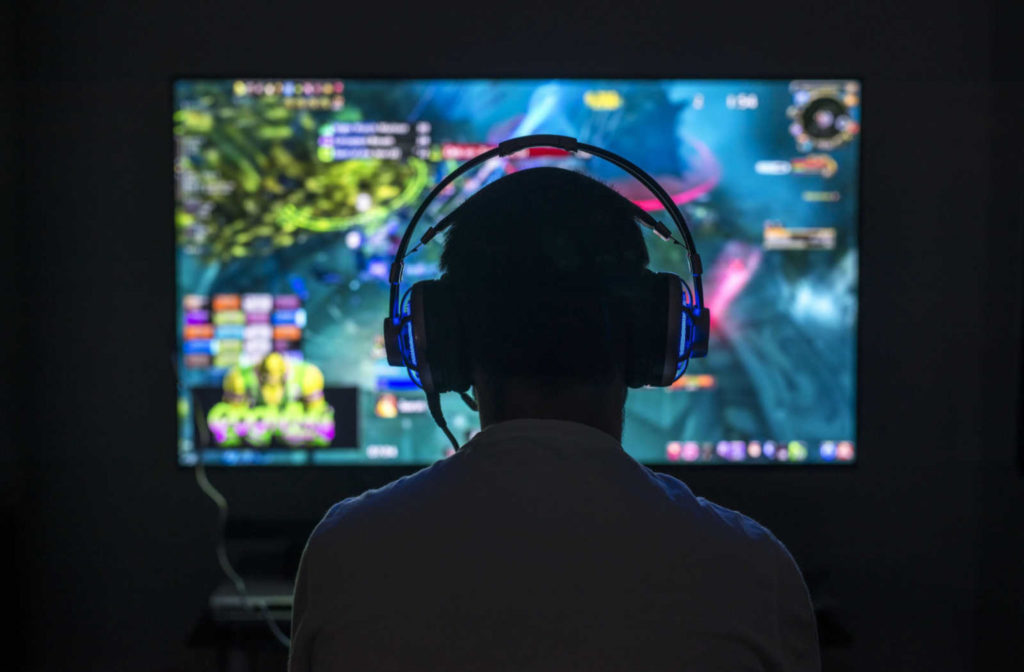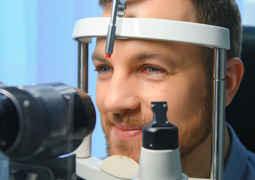Think back, and you may recall when children and adults spent more time outdoors. But with the increase in digital device usage, more people are spending their time in front of a screen, resulting in digital eye strain.
In 2020, 61% of Canadians played video games, with the average age being 34. And with the increase in popularity, video gaming can affect ocular health. So, what can video games do to your eyes? Let’s learn more about the negative and positive impacts of video gaming and how you can protect your vision.
What is Computer Vision Syndrome?
Computer vision syndrome (CVS) or digital eye strain (DES) is an eye problem caused by computer usage for work or leisure, which includes video gaming. Vision issues in adults and children are associated with more extended periods of continuous screen use to play video games, now called ‘videogame vision syndrome’.
Signs & Symptoms of CVS
Signs of computer vision syndrome result from glare, low screen contrast, sitting too close to the screen, bad lighting, and poor posture. Video gaming can worsen symptoms because of the constant focus required and playing for longer hours without breaks.
If you already have existing problems with eyesight, you are at increased risk of developing CVS when playing video games. Signs of CVS include:
- Eyestrain
- Blurred vision
- Headaches
- Sensitivity to light
- Dry eyes
- Watery eyes
- Pain in the neck, back, and shoulders
- Difficulty concentrating
The Effects of Video Games on the Eyes
Practically all digital devices have a screen. It would be unfair to say that only video games affect your eyesight. A more accurate statement is the amount of time you spend playing video games that have damaging effects on your vision.
Excessive video gaming can cause focusing problems. With video gaming, you generally don’t tend to look away as much compared to when looking at digital devices. It forces the eyes to remain focused on constantly moving graphics, which can cause difficulty focusing on other objects, even after playing.
Children who play video games for long hours can experience eye strain to the point where it can cause myopia. And in children with uncorrected refractive errors, playing video games can exert more focused effort to maintain a clear image.
Looking at a screen for long periods can lead to eye irritation and dry eyes. Without frequent breaks and blinking, the eyes don’t produce enough tears to keep them lubricated. Compared to the average of 12 blinks per minute, you only blink 5 times when using a computer.
Conversely, studies have shown that video games can improve vision, for example, with better contrast sensitivity at night or in low light settings. Video gaming, used as a tool for vision therapy, can treat amblyopia and improve visual acuity.
How to Protect Your Eyes When Playing Video Games
It’s important to note that video gaming has its benefits when playing in moderation. Working on the following habits can minimize the damage to your eyes:
- Avoid playing games for an excess of three hours at a time daily.
- Take frequent breaks when playing by using the 20-20-20 rule. Take a 20-second break every 20 minutes to look at something 20 feet away.
- Take blinking breaks to increase tear production or use artificial tears to prevent dry eyes.
- Avoid dark rooms or rooms with too much light, as this can cause glare and eye strain.
- Use proper lighting to reduce glare and match your screen’s brightness with your surroundings.
- Wear glasses with an anti-reflective coating or blue light glasses to reduce glare on screens.
- You can use a screen cover to reduce glare.
- Sit with proper posture to prevent neck, back, and shoulder pain.
- Position the computer at eye level. The screen should be arm’s length from your eyes.
Manage Digital Eye Strain
Remember playing video games is not necessarily bad; playing in excess is bad for your eyesight. Forming new habits and changing how much you play can greatly minimize eye strain and help protect your eyes for longer.
Visit Calgary Family Eye Doctors for a comprehensive eye exam if you experience any symptoms associated with digital eye strain or playing video games.




























